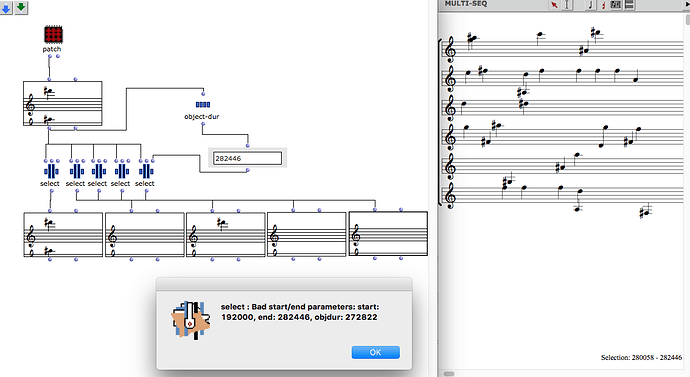hello om-ers,
I’m experiencing some problems with SELECT. it happens when selecting consecutive sections of a multi-seq-chord. although OBJECT-DUR reports the duration, let’s say 20000, when I put 20000 as for the 2nd input of select I get an error reporting that the object duration is less. object-dur value is consistent with what can be seen in the mseq editor selection.
please see the screenshot.
has anyone encountered this kind of problem?
btw, I’m still on 6.12 and hsierra.
thanks in advance for any info,
perti

